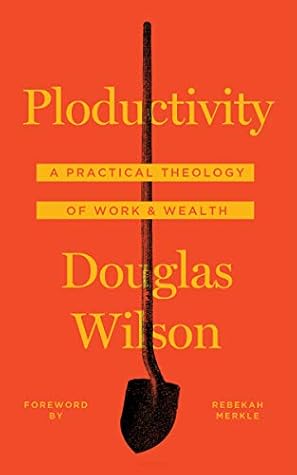More on this book
Community
Kindle Notes & Highlights
Is it possible for someone to be both relaxed and driven? People who are only relaxed are frequently slackers, and much of the book of Proverbs would appear to apply to them. But people who are driven give a diligent work ethic a bad name. Nobody wants to be like that. We might admire the house they can afford, but no one wants to be like the people who live in it.
do you want to be efficient like a machine, or fruitful like a tree?
If you have a smartphone, you have more wealth in your pocket than Nebuchadnezzar accumulated over the course of his lifetime.
We have a responsibility to turn a profit on these astounding resources—and that is what is meant by productivity. We have a responsibility to do this methodically, deliberately, and intentionally. This is what I mean by ploductivity. This is deliberate faithfulness: working in the same direction over an extended period of time. Our electronic servants may be super fast, but we should be as deliberate as ever.
Fourth, the diligent like to have their work speak for them, and unproductive men like to substitute talk for action.
Tools make it possible for our radius of fruitfulness (now there is a phrase for the ages) to extend much farther than it otherwise would.
This will be developed more fully as we continue, but what this means is that we should regard our tools the same way we regard our money—with grateful suspicion. Or perhaps, on alternating weeks, with suspicious gratitude. This has to do with the nature of creational goods in a fallen world.
But if you are alive, vibrant, and forgiven, you now live in a world where you can project that in amazing ways. The gospel is not some tiresome thing that door-to-door salesmen try to talk you into. “Repent ye therefore, and be converted, that your sins may be blotted out, when the times of refreshing shall come from the presence of the Lord” (Acts 3:19). We are actually talking about a cool breeze that blows off the ocean of God’s infinite pleasure and delight. We are talking about times of refreshing, and if we are not talking about times of refreshing, then we are not talking about the
...more
Every blessing a Christian ever receives is from a pierced hand.
Technology is a form of wealth; progress is a form of wealth.
The technophile just assumes that man is the measure of all things, and he plumps his resume in order to get a job with Google, so that he too may become one of the lords of the earth. The technophobe just memorizes the poetry of Wendell Berry, and yearns for the days of yesterday when all our food was eked out under a hot sun by a slow mule and a picturesque peasant staggering behind it. Both are forms of ingratitude; both are grotesque. The only obedient response is to accept that wealth as the gift of God that it is, and to keep it in its proper creaturely place.
The first step toward genuinely productive work is to make it a point to work coram Deo, in the presence of God.
George MacDonald once said that obedience is the great opener of eyes. The more we do, the more we will be able to do. The more we learn, the more we know, and one of the things we know is how to learn more.
So the first step in achieving mastery is taking responsibility for the results.
Another key to mastery is realizing that the key to originality is imitation.
First, if you pick a good model to imitate, this prevents bad things from happening when you apply the third key (which is repetition).
The second good thing about imitation is that it enables you to build on the good work that others have done, which is really the only healthy direction that originality can go.
Lewis again: “No man who values originality will ever be original. But try to tell the truth as you see it, try to do any bit of work as well as it can be done for the work’s sake, and what men call originality will come unsought.”4
The third key to mastery is repetition.
When people do something over and over again—and this should not come as a surprise—they get good at it. But to some, this seems suspiciously like work.
If they feel the urgent call to productivity, they tend to give way to the blind guides of intensity or extension.
Intensity is manifested when the deadline approaches and the manager of the project gets some lighter fluid, douses his hair with it, sets it ablaze, and runs around in tight little circles. Extension is the solution called “working late.”
This is another way of saying that an awful lot of us waste an awful lot of time. We blow our fifteen-minute opportunities like they grew on trees.
Pascal observed somewhere that it is a mistake to think that we can do all of the time what we can do some of the time. Put another way, it is a mistake to think that your high points, or your fastest speeds, or your most productive moments, can simply be duplicated over and over again at will.
Methodical is what does the trick. An amazing amount of work can be accomplished through diligent plodding.
And so we are summoning men to bow before Him in response to the authority He has. We are not trying to gather up authority for Him from the people in order to grant Him the right to do anything He wants. The Kingdom of God is not a democracy.


